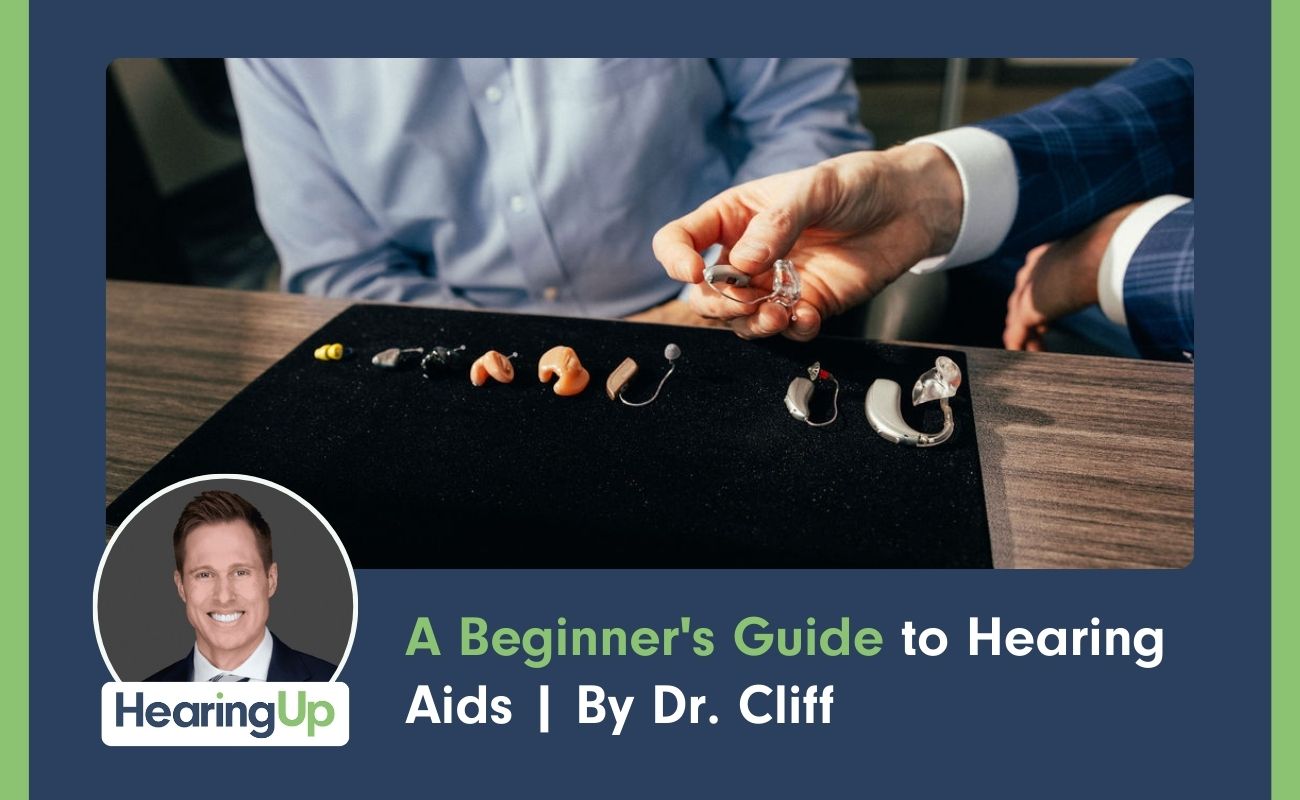As a species we’re getting older in terms of average age, and the number of individuals living with cognitive impairment is on the rise. With this trend the need for safe and cost-effective interventions to prevent or slow age-related cognitive decline becomes even more pressing. Dementia is a complex disease that requires a range of treatments, but recent research has discovered that hearing loss treatment could in fact slow down the cognitive decline.
Here we look at recent large-scale studies that have explored the potential link between the use of hearing aids and the reduced rate of cognitive decline, particularly among older adults at a higher risk of dementia. The findings from these studies could mean big things for how we come up with ways to combat cognitive decline and improve the overall quality of life of older adults.
The Connection Between Hearing Loss and Cognitive Decline
Hearing loss is a common issue among older adults, with nearly two-thirds of individuals over the age of 60 experiencing some degree of hearing impairment. Prior research has established a connection between hearing loss and an increased risk of developing dementia. However, it has also been suggested that treating hearing loss, specifically through the use of hearing aids, could help to slow the progression of cognitive impairment.
While we don't know the exact mechanisms for this relationship, we do know that hearing and memory are two separate but strongly connected brain processes that help control an individual's daily functioning and communication. When hearing is affected, the brain has to work harder to fill in the missing pieces of information, which can lead to cognitive overload and, over time, potentially contribute to cognitive decline.
The Impact of Hearing Aids on Cognitive Decline: Key Studies
Several key studies have focused on understanding the impact of hearing aids on cognitive decline, particularly among high-risk individuals. The Aging and Cognitive Health Evaluation in Elders (ACHIEVE) study and the study conducted by the National Institutes of Health (NIH) are two such pivotal research initiatives.
The ACHIEVE Study
The ACHIEVE study, conducted by researchers at Johns Hopkins University and seven other institutions, is one of the most extensive randomized, controlled clinical trials to assess the efficacy of hearing aids in reducing long-term cognitive decline in older adults. The study recruited nearly 1,000 adults aged between 70 and 84, who had untreated hearing loss but were free from significant cognitive impairment.
The results of the ACHIEVE study, published in The Lancet in July 2023, revealed that while the impact of hearing aids was not noticeable in the total study population, it was highly significant in a subset of older adults with mild to moderate hearing loss who were part of an ongoing study on heart health. In this group, the use of hearing aids was found to slow cognitive decline by a remarkable 48% over three years.
The NIH Study
The NIH study, on the other hand, focused on assessing cognitive decline in older adults with substantial hearing loss who were at a high risk of dementia. The study compared the rate of cognitive decline over a three-year period between individuals who did and didn't receive hearing aids.
The study found that the group who received hearing aids reported a substantial improvement in their communication abilities. More importantly, when the analysis was focused on individuals with a higher risk of dementia, the benefit of the hearing aids was substantial, with an almost 50% reduction in the rate of cognitive decline compared to the group who didn't receive hearing aids.
Potential Implications
These studies' findings suggest that treating hearing loss using hearing aids could be a safe and effective strategy to reduce the risk of cognitive decline and dementia in vulnerable populations. Given the treatable nature of hearing loss, it could serve as an important public health target to mitigate the risk of cognitive decline and dementia.
Moreover, the use of hearing aids could also contribute to improving the overall quality of life of older adults. As Dr. David Knopman, a Mayo Clinic neurologist, notes, "Hearing loss is a disability that interferes with their quality of life, and they ought to think about getting a hearing aid if it would benefit them in their daily lives, regardless of whether it has this additional long-term benefit of delaying cognitive decline."
How Audiologists Help in Addressing Hearing Loss and Cognitive Decline
If you're concerned about your hearing and potential cognitive decline, we recommend that you consult with a local audiologist, preferably one that is committed to evidence-based practices, like those in the HearingUp network. Audiologists can provide comprehensive assessments of hearing health, recommend suitable hearing aids, and provide ongoing support and counseling to individuals to help them maximize their hearing aids' benefits and potentially slow cognitive decline.
Looking Ahead: Future Research and Policy Changes
While the results from these studies are promising, further research is needed to fully understand the exact mechanisms through which hearing aids may help slow cognitive decline. Ongoing research efforts are focused on analyzing brain scans, data on social engagement, and the long-term effects of hearing intervention on cognition and other outcomes.
On a policy level, these findings could potentially guide policymakers in advocating for improved access to affordable hearing treatment and intervention. This could include not only hearing aids and related technologies but also diagnostic and hearing care support services provided by audiologists.
In conclusion, hearing aids might serve as a powerful tool in our arsenal to combat the increasing global burden of cognitive decline and dementia. By addressing hearing loss, we could potentially make significant strides in improving the quality of life of older adults and reducing the risk of dementia in high-risk populations.
Dr. Cliff's Pros and Cons for













